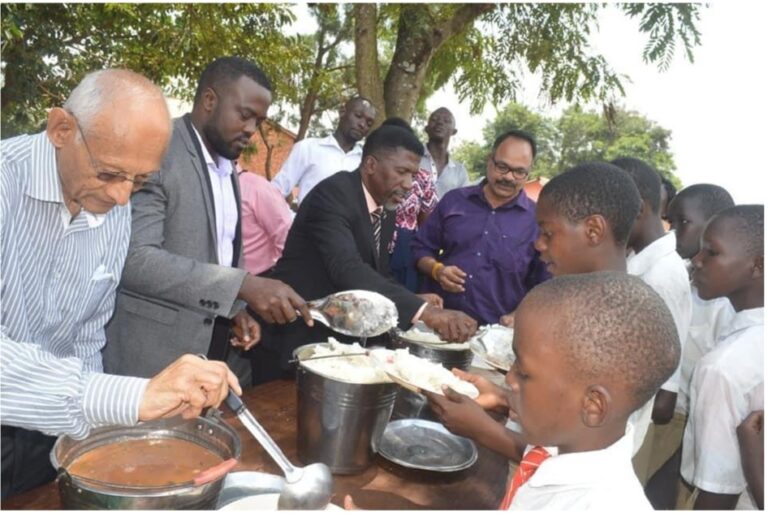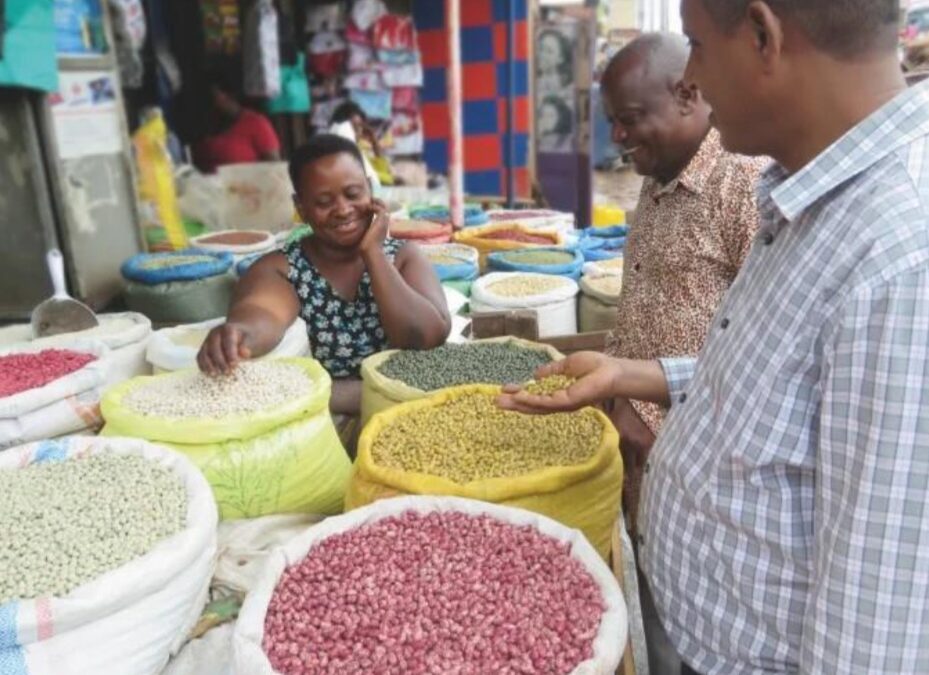Established in 1996, the Pan-Africa Bean Research Alliance (PABRA) is a collaborative bean research and development network of more than 650 partners and members across 31 countries in Sub-Saharan Africa.
PABRA’s overarching mission revolves around improving bean production, enhancing nutrition, improving food security, and bolstering livelihoods and natural resource management, all while fostering environmental sustainability. PABRA is currently facilitated by the Alliance of Bioversity International and International Center for Tropical Agriculture (CIAT) (The Alliance).
Through innovative research and development, capacity building, and actors’ engagement, PABRA works tirelessly to harness the potential of beans for sustainable development.
PABRA’s initiatives include bean demand-led breeding, optimization of seed systems and integrated crop management, nutrition/food technology, gender and social inclusion programming, linking farmers to markets and conducting monitoring evaluation and impact assessment activities for improved learning and investments in the bean value chain.

As the spectre of climate change looms large, agricultural systems worldwide face unprecedented challenges.
In many African diets, beans stand as a cornerstone, providing essential nutrients and sustenance to millions. Yet, their significance extends far beyond the realm of food security. Beans are nature positive crops that play a pivotal role in enriching soil health, promoting biodiversity and mitigating climate change due to their nitrogen-fixing capabilities and water use efficiency. Recognizing this intrinsic value, PABRA directs its research & development and partner engagement efforts towards harnessing the full potential of beans as agents of positive change.
The resilience of crop varieties becomes paramount. PABRA spearheads initiatives to develop and disseminate improved varieties. Between 1996 and 2022, more than 700 new and improved bean varieties have been released and a good number of them are climate resilient (high yielding, pest and disease tolerant, short duration, drought and heat tolerant etc) while aligning with consumer demand (good taste/palatability, high iron and zinc, faster cooking time). These have benefited more than 40 million smallholders, 58% being women, across countries like Ethiopia, Uganda, and Tanzania.
The increased bean yield and production has contributed to better nutrition, inclusive income of the farmers and traders (particularly women) and countries economies. By empowering farmers with access to these beans, PABRA not only safeguards food security but also fortifies agricultural systems against the challenges of climate change.

At the heart of PABRA’s endeavours lies the ethos of Beans is How, a mantra that encloses the program’s principle in the transformative power of beans.
With their ability to fix atmospheric nitrogen, beans enrich soil fertility, reducing the need for synthetic fertilizers and enhancing soil structure. Leading researchers at PABRA emphasize the multifaceted benefits of beans in mitigating environmental degradation and enhancing food security.
“We believe that beans hold the key to addressing food security and environmental sustainability in Africa. By promoting improved bean varieties that are resilient to climate change and advocating for sustainable farming practices and upstream activities to align with consumer demands, we can enhance food security while conserving our natural resources,” says Justin Mabeya, a leading researcher at PABRA.
The impact of PABRA’s interventions resonates across African farmlands, as echoed by testimonials from beneficiaries. Farmers like Richard Kirui and Naomi from Nogirwet Irrigation Scheme (Fig. 2 below), Bomet County-Kenya, share stories of increased yields, reduced chemical inputs, and revitalized soils, all thanks to PABRA’s research and training. These firsthand accounts highlight the tangible benefits of sustainable bean solutions, not only for farmers but for the planet.

Jean Claude Rubyogo – the Leader of the Alliance of Bioversity International and CIAT’s Global Bean Program & Director of PABRA added
“Beans are tiny grain but mighty with multiple beneficial uses for nutrition, inclusive livelihoods and in climate-smart agriculture.. They are a super food with multiple uses – from food, nutrition & health, inclusive incomes and national economies, climate smart and nature positive crop.
For the last 27 years, PABRA has demonstrated the transformative power of beans (PABRA and the power of beans in Africa: 25 years of transformation (cgiar.org).
As we collectively face a future world affected by climate change, beans will continue to provide essential nutrients for human nutrition more than any other crop.’’

Supporting #beansonthemenu in schools
PABRA’s commitment to sustainability extends beyond the farm gate and into schools. By advocating for #beansonthemenu in schools, PABRA encourages healthy eating habits and fosters a connection between children and the environment. Sparked by growing international recognition of the disconnect between agriculture and nutrition, since 2010, PABRA has expanded its focus to include nutrition and health.
This has involved bringing new partners and approaches into a network with advanced collaborative activities and processes. A Nutrition Core Team was created as a platform for incubating ideas and projects from member countries which culminated into the idea of working through schools to encourage the nutrition component in schools.
Some key examples
- Representatives from Madagascar, where beans are widely grown, have evaluated the substitution of bean flour for sesame as the designated protein source in their school-feeding program, leading to top notch support in policy change and supported by engagement with the ministries of health, agriculture, and education.
- Since 2018, PABRA has continued to work with schools in Kenya including Mwireri Secondary school in Nyeri, Njeru primary school in Gilgil to promote learning and grow food used for their school feeding program. This has helped the schools cut down the cost of feeding programs and allow the students to concentrate on their work. Currently, in collaboration with HarvestPlus project across Eastern Africa countries and more especially Kenya, PABRA focuses on integrating beans into the school feeding programs. The end target of the program is to reach at least 400,000 school-going children in Kenya. The success indicators for the HarvestPlus school feeding program would be high consumption outcomes of High Iron Beans (HIBs) and an increased number of students eating HIBs.
“Since we started the bean farming, we have noted a great transformation at the school. We are now self-sufficient in bean production and have cut down on the expenses of buying beans for our school lunch feeding program. Because of the assured meals at school, we have seen a drastic improvement in school attendance and retention” says Mr. George Murage, the Principal.

A call to Action!
As we celebrate Earth Day, PABRA invites schools, communities, and stakeholders to join us in embracing the power of beans. Whether it is advocating for bean-based diets, supporting sustainable farming practices, or engaging in educational activities, there are countless ways to be effective. Together, we can cultivate a brighter tomorrow for Africa and beyond.


